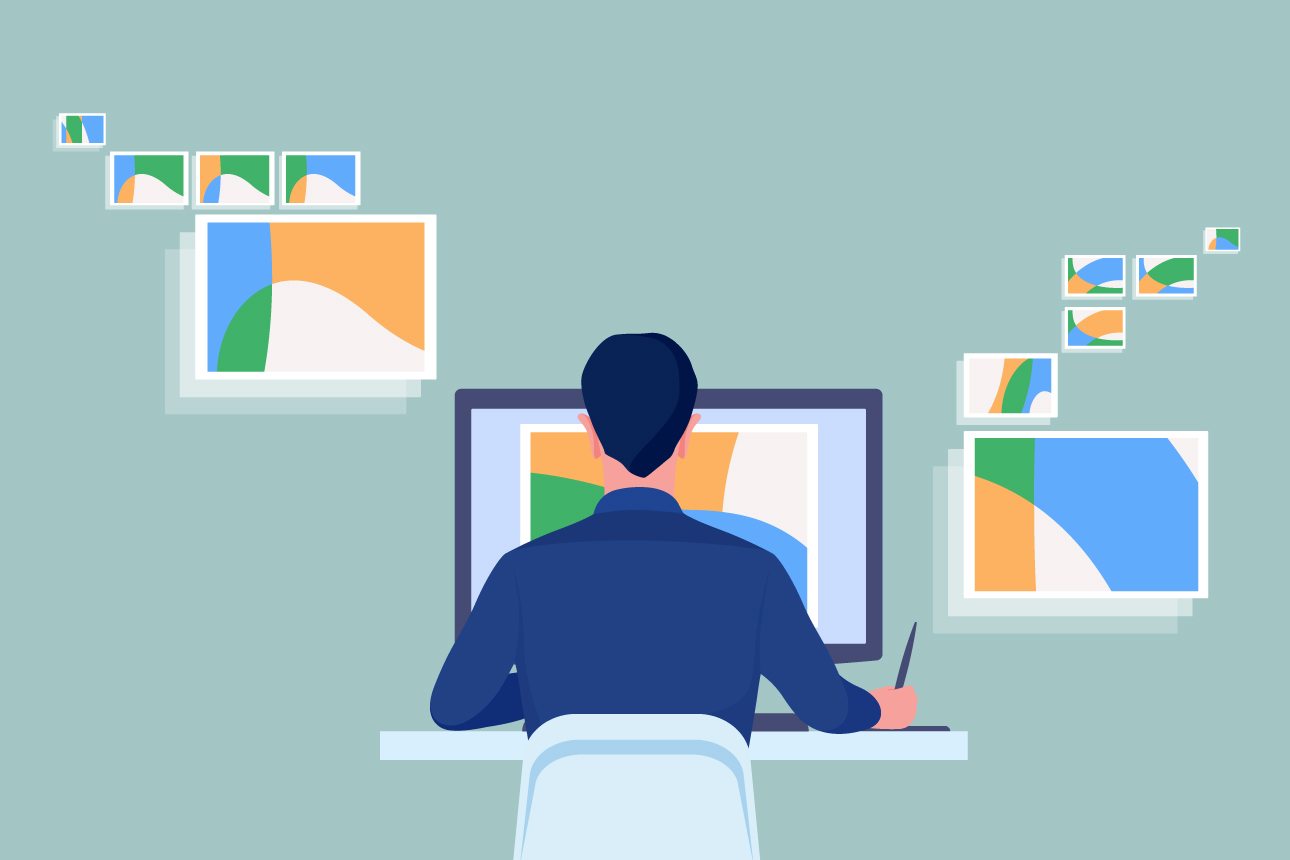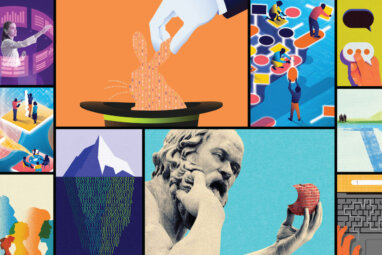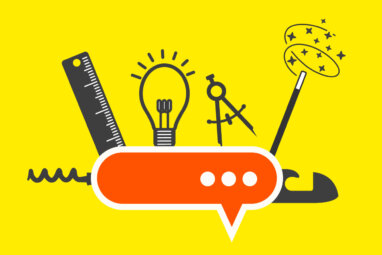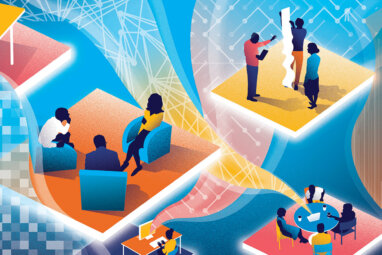How GenAI Changes Creative Work
Artificial intelligence is reshaping creative work and its teams. Leaders must prepare to address these ongoing shifts.

Carolyn Geason-Beissel/MIT SMR | Getty Images
Can AI be creative? While this question often leads to philosophical debates about the meaning of creativity, one fact is clear: Many creative professionals are already using an increasing array of AI tools.1 Art directors, copywriters, and others are harnessing generative AI’s capabilities to generate a large stream of text, imagery, and sound on demand. In one notable example, AI-generated content was selected as the winner in the creative photo category of the Sony World Photography Awards.2
What does this trend mean for the future of creative industries, the leaders who manage creative work in their companies, and their coworkers who make decisions in related areas such as marketing, sales, and legal? Here, we’ll discuss the ways in which AI is affecting this type of work and how creative leaders and their colleagues can prepare for these shifts.
Four Areas Where GenAI Disrupts Creative Work
Through our research and work with companies in this realm, we’ve identified four key changes that are reshaping the nature of creative work in the age of artificial intelligence.
1. Creative Content Supply
The proliferation of generative AI tools is set to substantially increase the creative content supply by enabling high-speed, low-cost production work. Consider the results of a survey of 650 executives: Early adopters of GenAI saved about 11 hours per week in various content marketing tasks, such as brainstorming and refining the design of images, infographics, and other visuals.3 Likewise, creatives are using generative AI to rapidly prototype ideas and test them within minutes.4
One concern is that the AI-enabled surge of creative content comes at the expense of quality. Indeed, there are cases of low-quality or even fraudulent AI-generated content, such as the “copycat” books that already populate Amazon.5 But there is also evidence that AI can provide help, especially for people who lack skills or confidence. For example, a recent study showed that generative AI increased writers’ creativity, with the most pronounced improvements — up to 26% — seen among less-creative ones.6 Overall, while generative AI will significantly increase the quantity of creative content, its effect on quality will be more complex.
References (17)
1. L. Bourton. “Shades of Intelligence: 83% of Creatives Are Already Using Machine Learning Tools — Is Now the Time to Get on Side With AI?” It’s Nice That, Nov. 15, 2023, www.itsnicethat.com; and K. Whiting, “This Is How AI Is Impacting — and Shaping — the Creative Industries, According to Experts at Davos,” World Economic Forum, Feb. 28, 2024, www.weforum.org.
2. A. Parshall, “How This AI Image Won a Major Photography Competition,” Scientific American, April 21, 2023, www.scientificamerican.com.




